|
In this interview, I talk to author Michael K Rose. I love hearing about the the joys and challenges of being a self-publisher, the new technologies and procedures indie authors are using, and how they manage the process of being both publisher and writer. I'm a massive a science-fiction fan so when, in 2011, a Twitter pal posted something about Michael's work, I took note and started reading. I wasn't disappointed. The thing I love about Michael's stories is that they stray well beyond the boundaries of what some might consider to be traditional sci-fi; his readers are as likely find themselves exploring the inner space of the mind as the outer reaches of space. This interview was conducted in 2012, at which stage he'd published a collection of short stories, and one novel, with a second in revision stage. Since then, that book's been published, and he's added another 11 to the stable! Louise Harnby: First of all, Michael, can you tell us a little bit about yourself and your writing? Have you always focused on science fiction, broadly speaking? What’s the appeal of this genre for you? Michael K Rose: I've always enjoyed the broad genre known as speculative fiction (science fiction, fantasy, etc.) but sci-fi has, for me, been a life-long love, whether it be in the form of films, television shows or books. Some of my earliest writings were science fiction, and while I have dabbled in other genres (and have several non-science fiction projects in the works) I believe that the majority of my work as a writer will be science fiction. LH: I read The Vast Expanse Beyond: 10 Short Stories a few months ago and absolutely loved it. I’m already a fan of both the short-story format and the sci-fi genre, but what really stood out for me with this collection was how it managed to surprise as well as entertain me – I didn't always know where the boundaries were between sci-fi and psychology. Is that something you particularly like to play with in your writing? MKR: I'm so glad you enjoyed it! I don't always know where a story is going to take me, especially when writing short stories (for my novel-length works I have a clearer idea, and I do outline, but nothing is off the table even then). I love all types of science fiction (hard, soft, over easy) but, as others have stated, science fiction is ultimately about people. And people experience things psychologically, emotionally, not just physically. Placing a story in a science-fictional setting with all its wonderful technology and meticulous world-building should not be an excuse to neglect this aspect of story-telling. We, as readers, don't always know the state of mind of the characters. Even if the story-teller (me, in this case) indicates one thing, there is no way of knowing if I'm even being honest with you. Straight story-telling is fine, and for the most part that is what you'll get in my novel Sullivan's War, but when it comes to short stories I tend to try different things. It's how I can play without wasting a month's worth of work if it doesn't turn out. I will mention that the sequel to Sullivan's War, Sullivan's Wrath, does play a lot more with psychology and characters' states of mind. LH: One of the stories in the collection, "Sergeant Riley’s Account", is a prologue the Sullivan’s War series. How did that come about? Was it harder to write with a pre-existing story line in your head, or did it help you flesh out the first novel in full? MKR: "Sergeant Riley's Account" was written long before the idea for Sullivan's War emerged. I also had most of a novel called Chrysopteron written, but I didn't feel as though it was close to being ready for public consumption. So for my first novel-length project, I decided that I wanted something action-oriented, something that would be fun to write but that still had some depth. "Sergeant Riley's Account" gave me the universe in which to set Sullivan's War as well as the narrative style that I wanted to use. I also had a couple of short stories that made their way into Sullivan's War, and that helped flesh out the novel quite a bit. 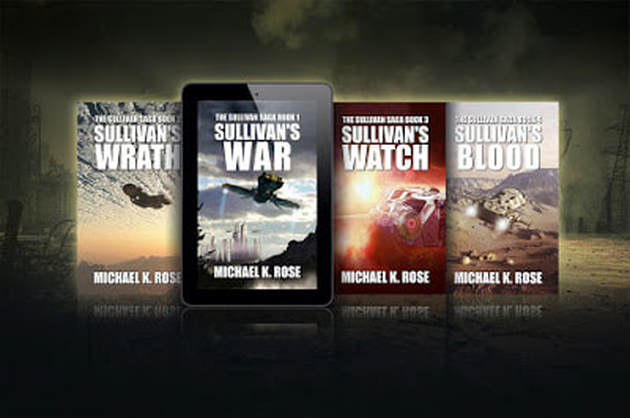 Photo: Michael K Rose Photo: Michael K Rose Are there other short stories to which you might return in the future because you have more to say? In “Inner Life”, for example, I felt that devilish itch a reader sometimes gets with a great short story to explore the protagonist’s world just a little more! MKR: Thank you! Your saying that means that I accomplished what I set out to accomplish. If a reader is left wanting more, s/he is likely to seek out more work by the author. I don't plan on revisiting any of the characters in The Vast Expanse Beyond but it's not outside the realm of possibility. Right now I'm writing twelve novels in twelve months [see below] so short stories are, for the moment, on the back burner. But I love writing (and reading) them, so there will definitely be another collection at some point in the future. LH: Can you tell us a little about your editing process, Michael? Do you use proofreaders or copy-editors to put the final polish on your work before it gets published? If so, what does the process involve for you in terms of finding the right person for the job and communicating your expectations to them? Do you have any concerns about this element of the process? MKR: I actually don't use an editor or proofreader at this time. When I first began self-publishing, I had everyone and their dog telling me I needed an editor. Some even went so far as to say that any book published without an editor would, essentially, suck. I began by e-publishing a few short stories. I wasn't too concerned about it at that time. But when I put together my first print book, my collection The Vast Expanse Beyond, I knew that any errors could not be easily fixed once it went to press. So I did the work that needed to be done. I'm blessed (and cursed) with a rather meticulous mind and I tend to notice errors in just about every book I read. I also spent not a little time researching grammar, punctuation, etc. Can I edit as well as a professional whose spent years doing the work? No. Of course not. Can I self-edit to the point where the vast majority of readers will not notice an occasional missing comma? Yes. And for me, the difference between my work before being looked at by an editor and after being looked at does not justify the expense. I do have friends who beta read for me and they also help me find some errors, but by the time my work is ready to be published I have personally gone through it at least half a dozen times (including re-reading during the writing and revision process). And the work has paid off. Several people have complimented me on the professional appearance of my books. But I do not recommend self-editing for most authors. However, if an author does decide to self-edit, I would strongly recommend taking the time to brush up on grammar and punctuation. When I did so I discovered that I held many erroneous assumptions about proper usage. LH: Earlier, you mentioned the #12NovelsIn12Months writing project. You prepared a Q&A in anticipation of the questions you thought you’d be asked. The first was, “Are you insane?” I’m not going to repeat that here because such an ambitious project clearly deserves closer scrutiny. Would you talk us through it? MKR: Right now, my circumstances allow me to write full-time. That may not always be the case, so I have decided that for the next year I will write a full novel each month. As I wrote on my blog, I have a dream to make a living solely from my writing. If I don't pursue that dream now and do everything I possibly can to make it happen, the opportunity may not come again. I do not want to wake up one morning ten years from now and realize that I let my dream slip through my fingers. I will fight for it. Even if it does not come to pass, I can resign knowing that I did everything that was in my power to make it happen. Producing twelve full novels over the next year is, quite literally, everything I can do. LH: To date, you've self-published. It’s exciting to see talented writers taking this particular journey and, in the process, bending the traditional rules of publishing. I imagine you've put a lot of hard work into not only the writing but also the digitization and marketing of your books. Have these elements of the publishing process come easily to you or have there been challenges along the way, too? MKR: Of course there have been challenges. I spent countless hours playing with html formatting and researching how to create particular effects to make my ebooks as professional as possible. Writing a story and letting Amazon's (or some other entity's) software convert it into an ebook for you is easy. But that ebook is probably not going to look the way you want it to look. I also learned how to use photo-editing software to create book covers, which prior to self-publishing I had only toyed with. I began developing my social media presence, making connections with other authors, starting a speculative fiction webzine, giving interviews. This is on top of the work I did honing my grammatical skills so I could properly edit my work. Oh, and there was a little bit of writing in with all that, too. It has been an incredible amount of work and anyone who wishes to self-publish must know that if you want to be successful at it (and I do consider my results so far a success) then you have to either spend the money to have someone do all the things I've talked about or else take the time to learn how to do them and do them well. LH: Would you ever go down the traditional publishing route, now that you've mastered the art of doing it yourself? Would you feel that you’d lose some degree of control or would you welcome this as another avenue of opportunity? MKR: If the terms were agreeable, I would of course consider "trad" publishing. But I am very proud of what I have accomplished as an Indie writer and will always support Indie writers when I can. LH: You probably get asked all the time to give advice on how to go about publishing your own novel, so I’m going to throw the question on its head and ask you what your top three “Don’ts” are. MKR: Hmmm ... 1) Don't go in with any expectations with regards to sales or reception. The only thing you can control is your book, not how people will respond to it. If you are happy with what you have done and know that you have given it your all, that is a success, even if you never sell more than a hundred copies. 2) Don't go it alone. Even before you begin to think about self-publishing, start making connections with other self-published authors. I was overwhelmed by the kindness and generosity I found in the Indie community and have done what I can to help other authors who have sought out my advice. There are people out there to help you. Don't be afraid to ask, but don't be upset if they decline. Most Indie writers must write in addition to holding a day job, raising children, etc. Ask for advice but don't ask too much of others unless you've developed a strong relationship with them. 3) I'll quote Henry James: "Three things in human life are important: the first is to be kind; the second is to be kind; and the third is to be kind." You never know who your next biggest fan/supporter will be. Avoid divisive discussions about politics, religion, etc. Treat others with respect. Don't make negative comments about other writers. If you act like a professional, people will treat you like a professional. LH: And finally, what plans do you have for the future, Michael? Anything in the pipeline that you’d like to share with us? Yes, I want to know about Chrysopteron! Can you give us a little teaser of what we can expect? MKR: Chrysopteron is the next novel that will be published. It is currently under revision and I hope to have it out by Christmas. This is the blurb that appeared in the back of The Vast Expanse Beyond: "Five generation ships were sent from Earth in the hopes of colonizing distant planets. The Chrysopteron was one of them. In a tale that examines issues of faith and self-determination, Michael K. Rose explores just what it is that makes us human. Will we ever be able to engage those who are different from us with love and understanding, or is the human race destined to forever be divided by trivial concerns? Even though we may leave the Earth, we cannot leave behind that which makes us human." I am sure the blurb will undergo several revisions between now and publication but hopefully that will have whet readers' appetites. I've lived with the characters in Chrysopteron for about three years now and they are very real to me. I am taking my time with it because I owe it to them to get this one right. Thank you so much for the interview! LH: Thank you, Michael. The glimpse you've given us of how you go about writing, editing and publishing is fascinating and inspiring. I appreciate your taking the time to share it. Michael K Rose is a science fiction, fantasy and paranormal author. His first major work, Sullivan’s War, has been called “… a sci-fi thriller that definitely delivers!” His second novel, Chrysopteron, has been hailed as a “… gem of a novel…” and “a masterpiece.” Michael holds a bachelor’s degree in Anthropology from Arizona State University. He currently resides in the Phoenix area and enjoys board games, tabletop role-playing games and classical music. For more information, please visit his official website or his blog Myriad Spheres. You can also connect with him on Twitter or Facebook. Louise Harnby is a line editor, copyeditor and proofreader who specializes in working with crime, mystery, suspense and thriller writers. She is an Advanced Professional Member of the Chartered Institute of Editing and Proofreading (CIEP), a member of ACES, a Partner Member of The Alliance of Independent Authors (ALLi), and co-hosts The Editing Podcast. Visit her business website at Louise Harnby | Fiction Editor & Proofreader, say hello on Twitter at @LouiseHarnby, connect via Facebook and LinkedIn, and check out her books and courses.
1 Comment
In this interview, Jo Bottrill talks about life in the busy project management agency Out of House Publishing.
Louise Harnby: Thanks for agreeing to talk to the Parlour, Jo. First of all, can you tell us a bit about yourself and how you got into the publishing business?
Jo Bottrill: I lead the Out of House team in helping academic and education publishers produce books and digital content. I have worked as a production manager with some of the leading scholarly publishers, working across print and digital media. For much of my career I have worked with XML and I am excited about the opportunities for bringing print and digital production together. I enjoy finding solutions to the challenges publishers face. It's important to me to keep things simple and efficient – by doing so we can do more with less. My interest in publishing started at school, where I was torn between my love for the sciences and English literature – I decided to follow the science route but resolved to get into publishing or journalism to marry the two. I started my career in science publishing but now work across all the academic subjects. LH: Could you tell our readers a little about the company you run? What services do you offer and in which subject areas do you specialize? JB: Out of House Publishing is a publishing production company based in Stroud, Gloucestershire. We specialize in producing books and digital content for academic and education publishers, organizing every aspect of the production process from manuscript development to final delivery. We understand the demands publishers face and tailor our services to anticipate their needs. We help produce over 200 new titles each year across a wide range of subject areas – I looked at our list this morning and we have titles ranging from Optical Magnetometry to a study of the Victorian novel, and everything in between. LH: Editorial freelancers who’ve never worked in publishing are sometimes unaware of the procedures and pressures of that production staff face. What are the main challenges you have to deal with in your business? JB: We’re working hard to produce high-quality books in a reasonable time and for the best price possible. While we put the quality of our work at the forefront of our efforts, we neglect schedules and budgets at our peril. Our customers depend on absolute timeliness and are working to very tight margins, as are we. What’s more, we have the good name of our publishers to uphold – not only are we producing books, we’re also looking after authors – making sure they are justifiably proud of the book we've produced together. It’s important that they look back on the production process fondly. In all of this we are looking after people and that’s our biggest single challenge – making sure that everyone is happy and that where things have gone wrong we put them right quickly. LH: What about new developments in the industry (e.g. digital production). What changes in the publishing world are having the biggest impact on you and do you see these as exciting opportunities or are they sometimes obstacles? JB: For me, the most exciting opportunity is in bringing print and digital production together. Having our editors and proofreaders getting their hands dirty with content gives us a perfect opportunity to think about how digital versions are going to work, from simply checking that cross-references are correctly hyperlinked, to identifying opportunities for adding enhanced content such as video, audio or animation. Start-ups and visionaries are pushing the boundaries of technology; our job is to make sure the simple things work, that end-users receive high-quality content that will work on their preferred devices. There’s a temptation to overcomplicate these things – my interest is in building efficient workflows that produce without too much fuss! LH: So, when you’re hiring a new editorial freelancer what are the primary qualities you’re looking for and how do you assess these? Do you expect them to have a particular training background, previous experience, or knowledge of the subject areas in which you work? Are there are other factors that are important to you – references and testimonials perhaps, or a specific educational background? JB: Training. Experience. Test. Those are the three hurdles we need freelancers to cross. We can be flexible – some of our most trusted freelancers have little or no formal training but bucket loads of experience and a great reputation. We really only take Society for Editors and Proofreaders (SfEP) and Publishing Training Centre (PTC) courses seriously – they both seem to give people a genuine feel for the needs of their future customers. We do take degree and postgraduate qualifications into account when considering which subject areas a freelancer will be best suited to. Experience must be relevant, we won’t be recruiting a copy-editor experienced in editing novels to copy-edit a complex humanities title with short-title references. LH: One of the things I've been most struck by (and find most useful) is the detailed feedback that the members of your in-house team give your editorial freelancers. Is this something that’s house policy and if so what was the driving force behind this? JB: Sending feedback is a definite house policy – we encourage all of our project managers to pass constructive feedback to our suppliers; and we seek the same feedback from the customers and authors we work with. We’re very deliberate in the way we take on freelancers – modelling our pool of suppliers to the volume and type of content we expect to be working on. In so doing we’re aiming to build a team of people who understand our business, and who in turn we understand and respect. Equally we rely on our freelancers to point out where we’re going wrong, to help us improve our service and to keep things as efficient as possible for everyone involved. LH: How to you find your editorial freelancers? Or do they find you? JB: Freelancers increasingly find us, and we do carefully consider every approach from a prospective supplier. We have advertised with the SfEP in the past, and if we have a shortage in a particular subject area we will search the SfEP and Society of Indexers directories. LH: You’ve told us about the challenges and pressures of working in the publishing project management business. What’s the nicest thing about your job – the element you enjoy the most? JB: Getting excellent feedback from a happy author is the best feeling. Meeting an impossible deadline also gives me a real buzz, but best of all is taking pride in the team we've built under the Out of House banner – both in-house and freelance. LH: From your particular business point of view, what are the most exciting developments taking place in publishing at the moment? JB: There are too many to mention. Digital is clearly opening up so many new opportunities for selling and consuming content. With opportunity comes risk and we need to be wary of the disruption digital developments will bring to the supply chain and respond accordingly. If we’re passionate about getting good content out to people who want to read it then we should be excited about the future. In that vein, Open Access is a major force that will play a big part in moulding and disrupting the industry that gives us our living. Consumers of scholarly books and journals are pushing hard for more open-access content. There are numerous models for funding this but it’s likely that we’re going to be working more closely with the scholarly community in quite different ways very soon. Changes in the classroom promise to shake things up too – Apple iBooks is only just getting going and digital textbooks, elearning and remote teaching all have the potential to significantly change what we produce. We’re at the coalface of content production and that puts us in a great position to take the lead.
You don’t necessarily need to have a legal background to proofread law books. If you’re comfortable with often dense and highly complex material, huge numbers of footnotes, and lengthy citations – and the legalese doesn't scare you to death – then this could be the work for you!
The many faces of the law
The law covers just about every aspect of human life, so the books on offer tackle a multitude of subjects. I’ve worked on legal books with a focus on public health, marine conservation, labour law, genetic resources, constitution building, piracy, family law, comparative law, European law, intellectual property rights, religion, climate change, competition law and cartelism, and environmental governance. Since I came to this work with a strong background in the social sciences, it suited me down to the ground. I’ve also been pleasantly surprised by the readability of most of the law books I’ve proofread. They’re often written by lawyers for lawyers (or by law professors for their colleagues and students) so you won’t be confronted by the impenetrable sea of words that often appear in legal documents. The authors aim to communicate with their readership just like any other writer. If you have experience of proofreading high-level academic books and journals, legal work shouldn’t present you with a problem.
What are clients looking for?
Rather than making assumptions based on my own experience, I asked one of my publisher clients to tell me what she looks for in a legal proofreader. Here’s a summary of our discussion:
Other points to bear in mind
Footnotes (or endnotes) tend to be lengthy. Sometimes it can feel like there’s more text in the notes than in the main body of the book.
Should you?
Actually, none of the above issues is problematic as long as you have a good concentration span and you aren’t surrounded by distractions. Distractions and proofreading don’t tend to go well together at any time, but with legal proofreading you may end up gnawing off your own arm if you don’t have the space to do the work without interruption. Working with law books is not unlike working with any other specialism (social science, STM, fiction) in that you need to be able to work within a framework of industry-recognized citation conventions, house style guides, and author preferences, while all the time employing a good old-fashioned dose of common sense. Talking to your client so that you understand what’s expected is crucial whatever kind of work you’re doing because only in that way will you understand the implications of your mark-up. When I was first approached with an offer to work in this field, I accepted it with some trepidation. A few years on, I can honestly say that I thoroughly enjoy it. Proofreading law books can be a rewarding and highly informative experience. As the world changes, so does the law. Globalization, public health awareness, climate change, and the birth of the internet have given rise to new dimensions within the law and I rather like getting paid to read about them.
Louise Harnby is a line editor, copyeditor and proofreader who specializes in working with crime, mystery, suspense and thriller writers.
She is an Advanced Professional Member of the Chartered Institute of Editing and Proofreading (CIEP), a member of ACES, a Partner Member of The Alliance of Independent Authors (ALLi), and co-hosts The Editing Podcast. Visit her business website at Louise Harnby | Fiction Editor & Proofreader, say hello on Twitter at @LouiseHarnby, connect via Facebook and LinkedIn, and check out her books and courses. |
BLOG ALERTSIf you'd like me to email you when a new blog post is available, sign up for blog alerts!
TESTIMONIALSDare Rogers'Louise uses her expertise to hone a story until it's razor sharp, while still allowing the author’s voice to remain dominant.'Jeff Carson'I wholeheartedly recommend her services ... Just don’t hire her when I need her.'J B Turner'Sincere thanks for a beautiful and elegant piece of work. First class.'Ayshe Gemedzhy'What makes her stand out and shine is her ability to immerse herself in your story.'Salt Publishing'A million thanks – your mark-up is perfect, as always.'CATEGORIES
All
ARCHIVES
July 2024
|
|
|
|


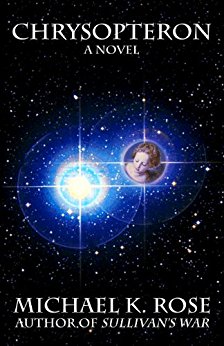
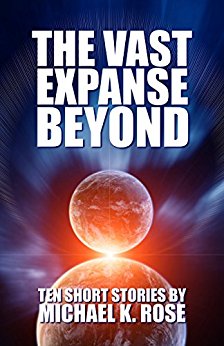
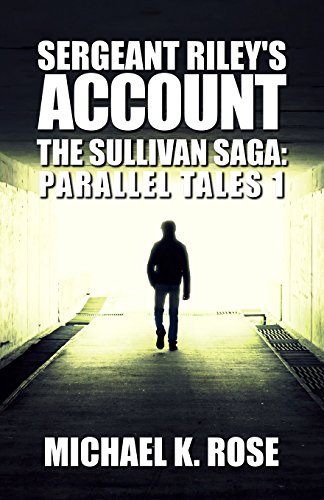

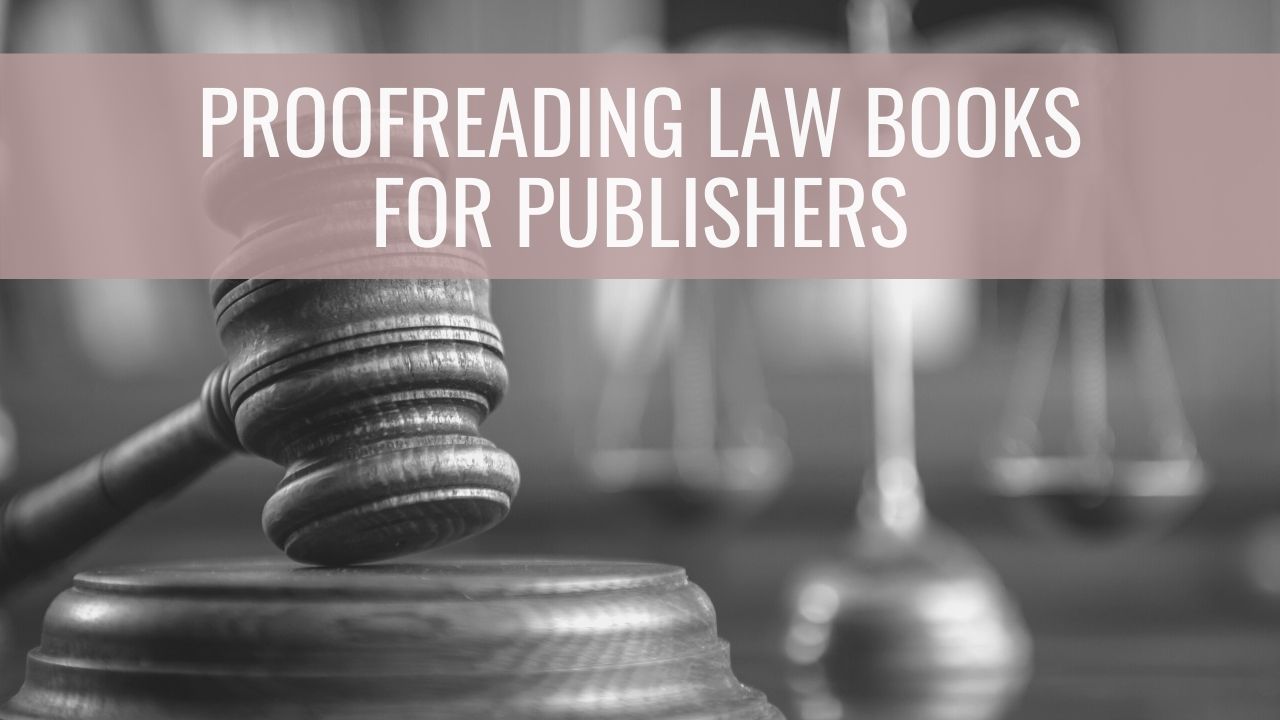
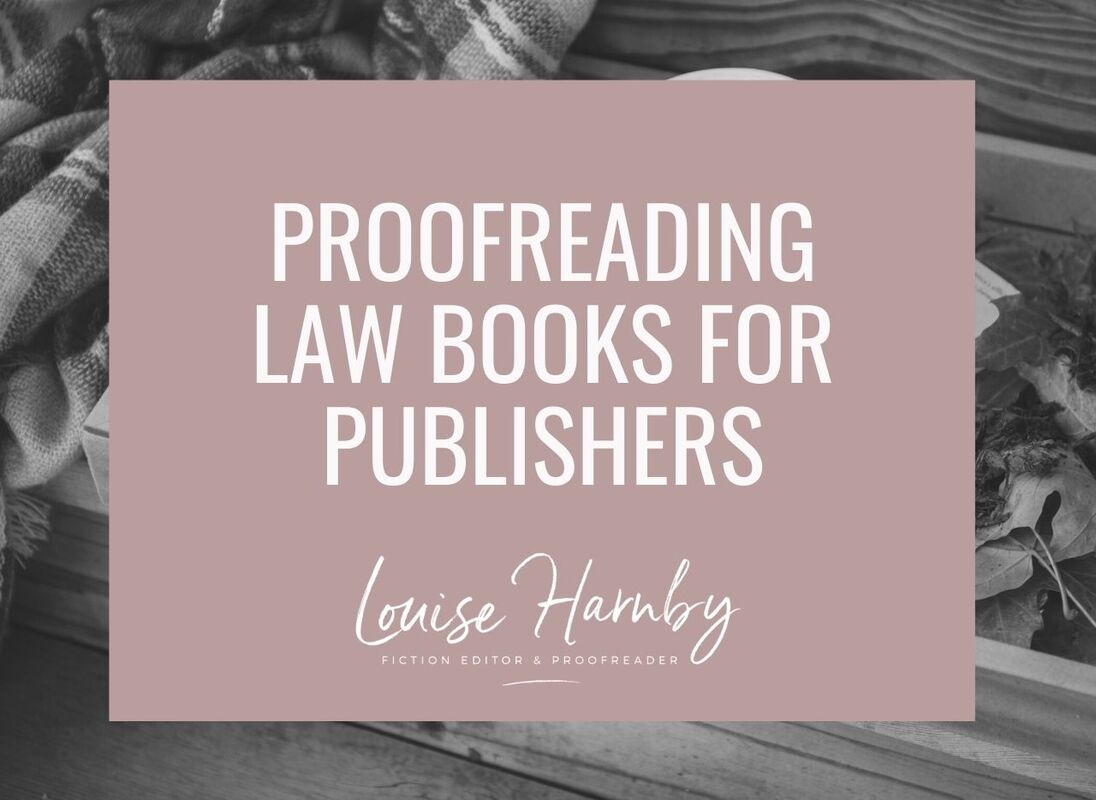

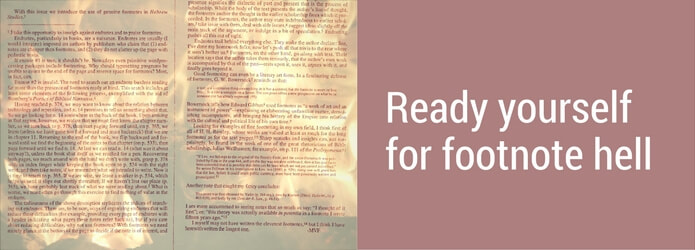













 RSS Feed
RSS Feed





